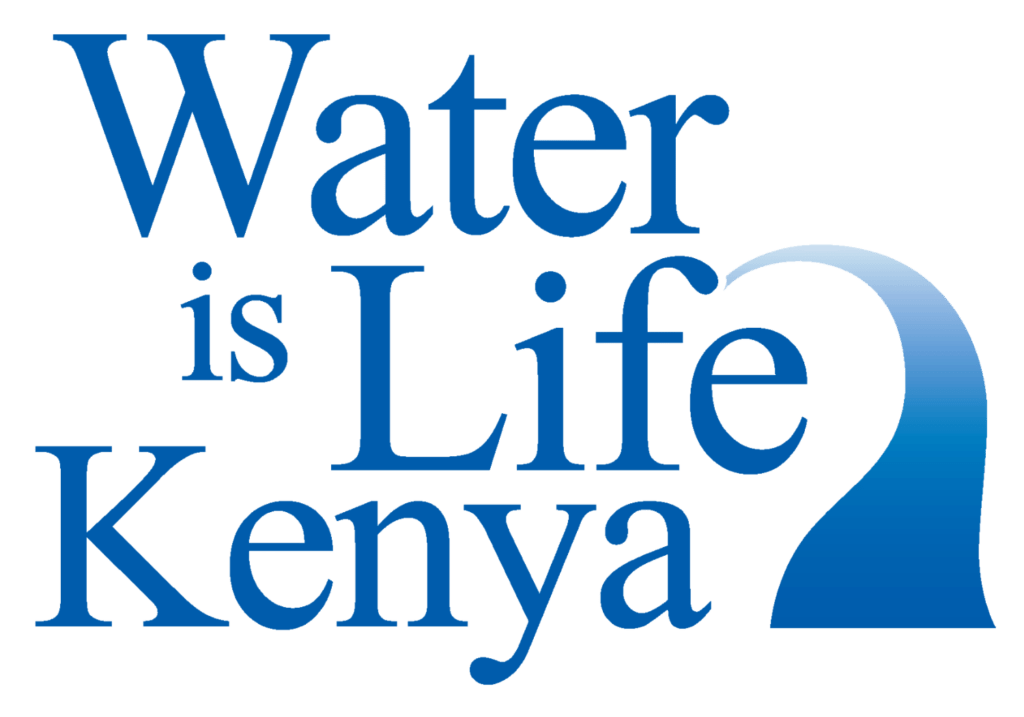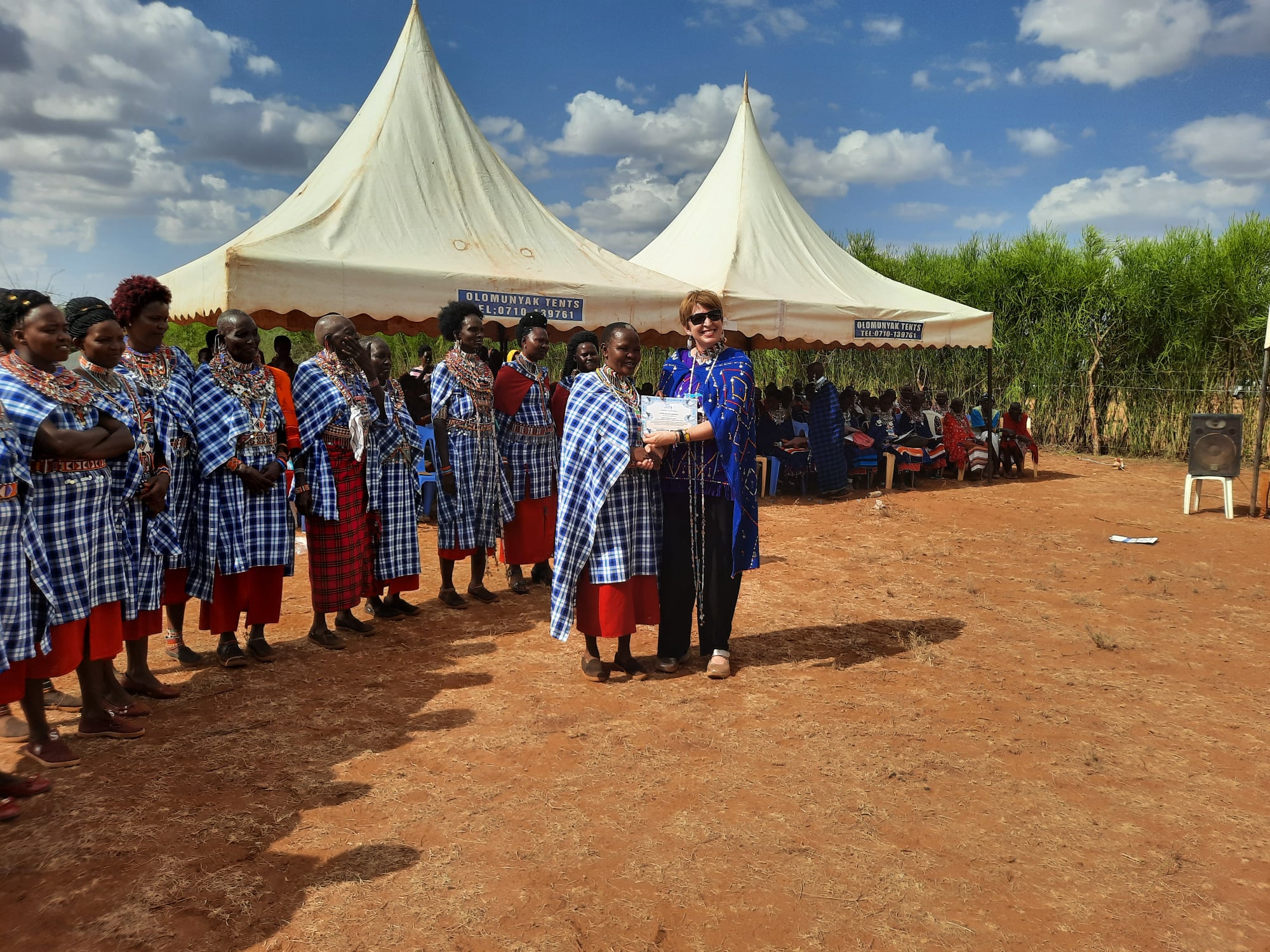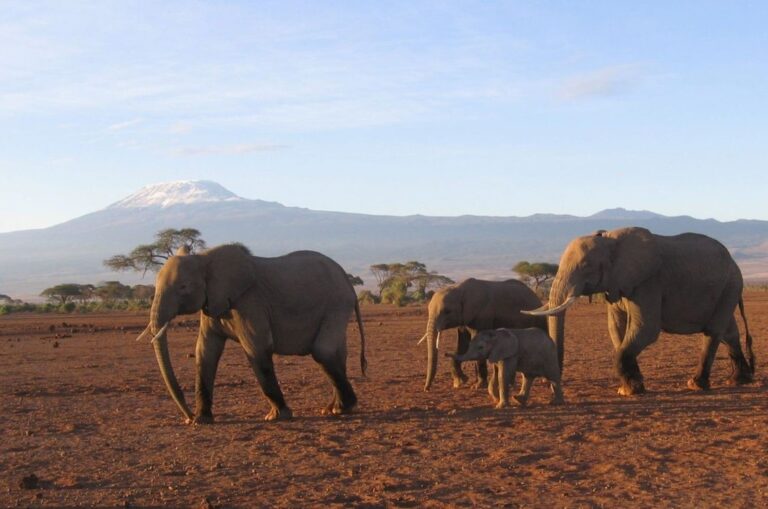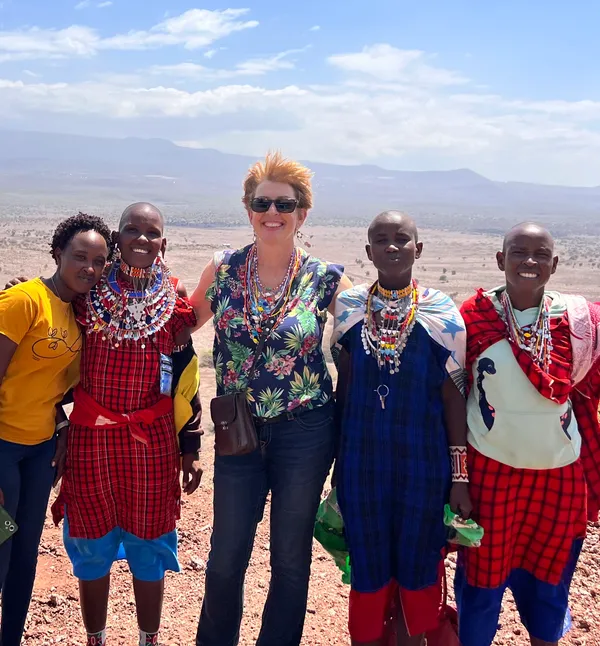Water is Life Kenya (WILK) experienced an extraordinary year. We celebrated the success of graduating livestock farmer groups in our Livestock as a Business program earlier in March and the launch of a new program, Hope for Widows, in July. Two new water projects got underway in Empalakai and Ilkisonko Boys Secondary School, while the severe ongoing 2-year drought tested our flexibility and ability to respond quickly to the developing crisis on the ground. What is clear, is that the close relationships of trust that we have with the community we serve and with our community of donors enabled us to deliver hope and impactful programs at the right time to people who needed it most.
LAB Graduation
On March 25, we celebrated the graduation of our Livestock as a Business (LAB) groups in Orngosua. Four groups sang songs of thanksgiving for the training and loans they received from our successful program, which started in 2011. Topics discussed in the training programs included selecting the best breeds of livestock, treating sick animals, drought cycle management, pasture conservation, and choosing the best time to buy and sell. In total, the groups received four years of training before receiving their certificates. They also were given livestock prizes at the ceremony, which delighted the crowd of over 400.
Annual Water Committee Training
WILK borehole leaders came together in March for WILK’s annual Water Committee Training Seminar in Loitokitok. WILK staff together with officers from the County Water Ministry trained borehole leaders from all of our boreholes. Monitoring and regular trainings are key to our boreholes functioning continuously. Training covers topics such as generator maintenance and repair, borehole budgeting, tariff setting and collection, conflict resolution, financing large repairs, and leadership. Experienced leaders also teach inexperienced leaders, using lessons they’ve learned from managing their own water project, for example how to handle members who don’t pay on time, and how to collect money consistently to pay the operator their monthly salary, so that they don’t lose helpful and experienced workers due to late payment.
Empalakai Borehole Project
We broke ground on April 21 to begin the process of drilling and testing a new borehole in Empalakai. It took about five months for the project to be fully operational, as the 220 m. well also needed an appropriate pump and generator to be installed. Once the well construction was completed, water basins and cattle troughs were built. Estimates show that approximately 6,000 liters of water per minute can be pumped from the well. On September 19, people lined up with jugs to receive the clean, accessible water they so desperately needed. The opening ceremony will be in early 2023, when lives and incomes have recovered following the long drought of 2021 and 2022.
Hope for Widows
As soon as we discovered the problems that Maasai widows face due to marginalization, poverty, and land loss, we knew we had to help them. In May, we received a generous grant from the Raskob Foundation for our Hope for Widows pilot program. The grant gave us the opportunity to develop a plan to propel the widows toward independence and self-esteem.
Part of the program’s purpose is to teach small business skills that provide both short-term and long-term financial gains. Women received cash to jumpstart chosen businesses, from buying and reselling staple foods to producing beadwork items to sell to tourists, for daily income. At the graduation ceremony in November, widows received one male and two female goats to develop a herd for profitable sales and support larger family expenses, like school tuition. Forty women participated in the initial training, and 37 received the grants. We’re monitoring their journeys every week to support them so we can improve future iterations of the program.
Food Relief
Because of the devastation of the two-year-long drought in Kenya, we supplied food relief on three separate occasions. The arid conditions prevented grass and crop growth which, in turn, caused starvation for both people and livestock in many areas, including Kajiado County. From August through November, we provided the gift of hope and staple foods of maize, beans, and cooking fat to more than 2,000 families (approx. 14,000 people) suffering from the seemingly endless drought.
We began our efforts with our Food and School Campaign because many people were giving up food to send their children to school. We raised over $6,700 and distributed food to over 150 families at two different schools, which meant that fewer hungry students were attending their classes.
With our 2022 Drought Relief Campaign, we raised nearly $15,000 and fed more than 1,770 families in Imisigyio, Olepolos, Meshenani, Risa, and Namelok in October and November. Incidentally, Imisigyio was the first town in Kenya where we dug a borehole, so it was appropriate that 15 years later we went back to help the community when yet another severe drought hit the area.
On November 30, we partnered with the Nairobi Greater Lions Club to receive $10,000 to fund drought relief for 300 families in Noorio. Each family was provided with a month’s worth of food to help them survive the dire conditions caused by the drought. Nooriro is the location of our first new water project in 2023. We are building a strong relationship with the community.
Ilkisonko Borehole Project
On November 9, we began our most recent borehole project at the Ilkisonko Boys Secondary School. Students faced water rationing, and the surrounding community also had a non-functioning water supply, buying from water daily vendors hauling water with donkeys. We completed water testing from the 300 m. well on November 23. Our Giving Tuesday campaign raised over $15,000 to purchase and install a pump. Once we’ve built the infrastructure and installed the water pump and generator, the students and the neighboring community will have access to regular clean water.
Looking Ahead
As our Water is Life Kenya team looks forward this coming year to new projects with our partner organizations, the Lions Club of Greater Nairobi and US chapters of Engineers Without Borders, we will also carry forward important observations from this past year. We can’t overstate the importance of developing and managing pasture resources to ensure more drought resilience and reliable income from livestock keeping. Area leaders and LAB group members will document their experiences, propose solutions, and map a way forward. With so many experienced and wise people we will surely come up with strategies to increase food supplies for livestock and the number of animals that survive the long droughts.





Pingback: Animals, LAB, and Maasai Traditions
Pingback: World Water Day: Celebrating Success Stories | Water is Life Kenya